
This post is also available on/was written for OMG! Ubuntu
It looks like 2011 started well for Debian. The project won awards in two out of seven categories at the
Linux New Media Awards 2011 ( Best Open Source Server Distribution and Outstanding Contribution to Open Source/Linux/Free Software ). Just recently Internet.com declared Debian the
most influential distribution ever, stating that ~63% of all distributions now being developed come ultimately from Debian.
However, my intention for this article is not solely to praise Debian for its recent awards, but rather to focus on a new project, Debian CUT. Don t be surprised if you haven t heard about CUT; it seems most Debian community
hasn t either. Then again, maybe it s because it is only labelled as unofficial/development so far.
A bit of history
One of the greatest criticisms of Debian is that its release cycles are too long. Debian stable release is seen as often as Ubuntu s LTS release. As a server solution this doesn t present a problem at all, it can even seen as a pro. However, for desktop use and for your average Joe who needs to have the latest software and is unable to get it, this may well present a problem. Of course he can always turn to
backports to get what he needs but by the time you have finished reading this very sentence, Joe has already moved to Ubuntu.
For those who are completely unaware how things work within Debian, let me try to shed some light.
Debian has 3 main branches:
Unstable , is a branch used mainly by developers, where the latest changes to the software they are working on are made. Usually, after approximately 10 days this software is pushed to testing , branch which is going to become next Debian stable release.
For comparison, in the process of a new Ubuntu release at one point in this process, changes from
testing/unstable are frozen where Ubuntu fixes bugs until they are ready to release new Ubuntu release. Debian s
testing branch is said by some to be more stable then most of the
stable distributions out there. Last but not least is
stable branch, which follows the (in)famous mantra it s released when it s ready , although last two releases have been released in a more timely manner.

Okay, so what is Debian CUT?
The idea stretches back more then 2 years, to Joey Hess proposing the idea of
Constantly Usable Testing . For users/developers who can t wait ~2 years to see new Debian release, they usually turn to Debian testing branch. To clarify, testing images are released
weekly, but most of us in Debian don t recommend you jump to testing by installing it from weekly image, but rather by upgrading from stable. To make the situation even worse, these builds frequently don t work due to all the changes that have been pushed from unstable.
But this is where Constantly Usable Testing idea comes in, where the installer is always installable and you re already using what s going to be next stable release. You wouldn t have to worry about whether the next update is going to break your system, but would get regular security updates, while the big updates would come in shape of new testing snapshot versions. Frequency of release of these snapshots is ought to be on monthly basis, so you can plan on seeing the next release on April 6th (exactly one month after the current release, provided of course if there are no showstopper bugs).
To sum it all up, you wouldn t have to wait ~2 years before new Stable release shows up, nor (in case you have already switched to testing) would you have to worry whether your next update will break your system. You would get your updates in form of timely (ie: monthly) snapshots until it s time for major milestone which would turn out to be new Debian release. Even though this might be long term goal, in these early stages no one can guarantees this.
Rolling release?
The simplest way to explain this concept is that there are two types of Linux distributions: one with milestone version numbers and other where new updates keep coming through their rolling release cycles. Some of the rolling distributions are Gentoo and Arch Linux, while on the other side you have RedHat and Suse. Novell announced that OpenSuse is moving to rolling release with project codename Tumbleweed. It s also worth mentioning that Debian already has its rolling counters and perfect examples are:
LMDE and
aptosid.
It is a way to continuously develop software, a way that best fits Debian as a platform where software is continuously developed. Especially because most of its greatest values could get lost with the release of that big stable version . Perfect case of that could be the almost drop of
Chromium in Squeeze.
Another great example could be Android, which is criticised most for its versioning. Companies are refusing to release new Android versions to their current phones, because they want you to buy new phone with latest Android version, even though your current one is perfectly capable of running latest Android.
Personally, I m sure the future will reveal that rolling releases are the future, towards which all Linux platforms should be heading. Perhaps the definition of rolling releases I gave earlier is why I believe this project has such bright future ahead of it. Debian would be somewhat of a hybrid of this definition, it would be rolling release until it s time to mark a big milestone with a version number, and before you know it, we re rolling again.
Unofficial Debian Monthly Testing Snapshot Release (version 2011.03 final)
Michael Gilbert took on a big responsibility, trying experimentally to prove the feasibility of such a project. He has released a first wheezy snapshot installer (versioned 2011.03) as a test for the development community to try out and evaluate.
Please read official announcement along with download links. While you can use this snapshot to have constantly working installer, after it is installed you could move to testing altogether if you wish.
Conclusion
As I have already mentioned, this project is still in the development/experimental stage, which makes all of this its very conception. Also, apart from
rumors of Ubuntu becoming rolling release, if Ubuntu is to get its rolling release this how it s going to get it

If you d like to find out more about Debian CUT, I suggest you read
Raphael Hertzog s article
A constantly usable testing distribution for Debian , and watch the video of Joey Hess
CUT BoF on DebConf10 in NYC.
Of course, if you d like to get involved into this project, please use the
project s mailing list. If you have any comments, please do share, as I d be happy to answer any of your questions.
 O Debian Day em Macei 2023 foi realizado no audit rio do Senai em Macei com
apoio e realiza o do Oxe Hacker Club.
Se inscreveram cerca de 90 pessoas, e 40 estiveram presentes no s bado para
participarem do evento que contou com as 6 palestras a seguir:
O Debian Day em Macei 2023 foi realizado no audit rio do Senai em Macei com
apoio e realiza o do Oxe Hacker Club.
Se inscreveram cerca de 90 pessoas, e 40 estiveram presentes no s bado para
participarem do evento que contou com as 6 palestras a seguir:
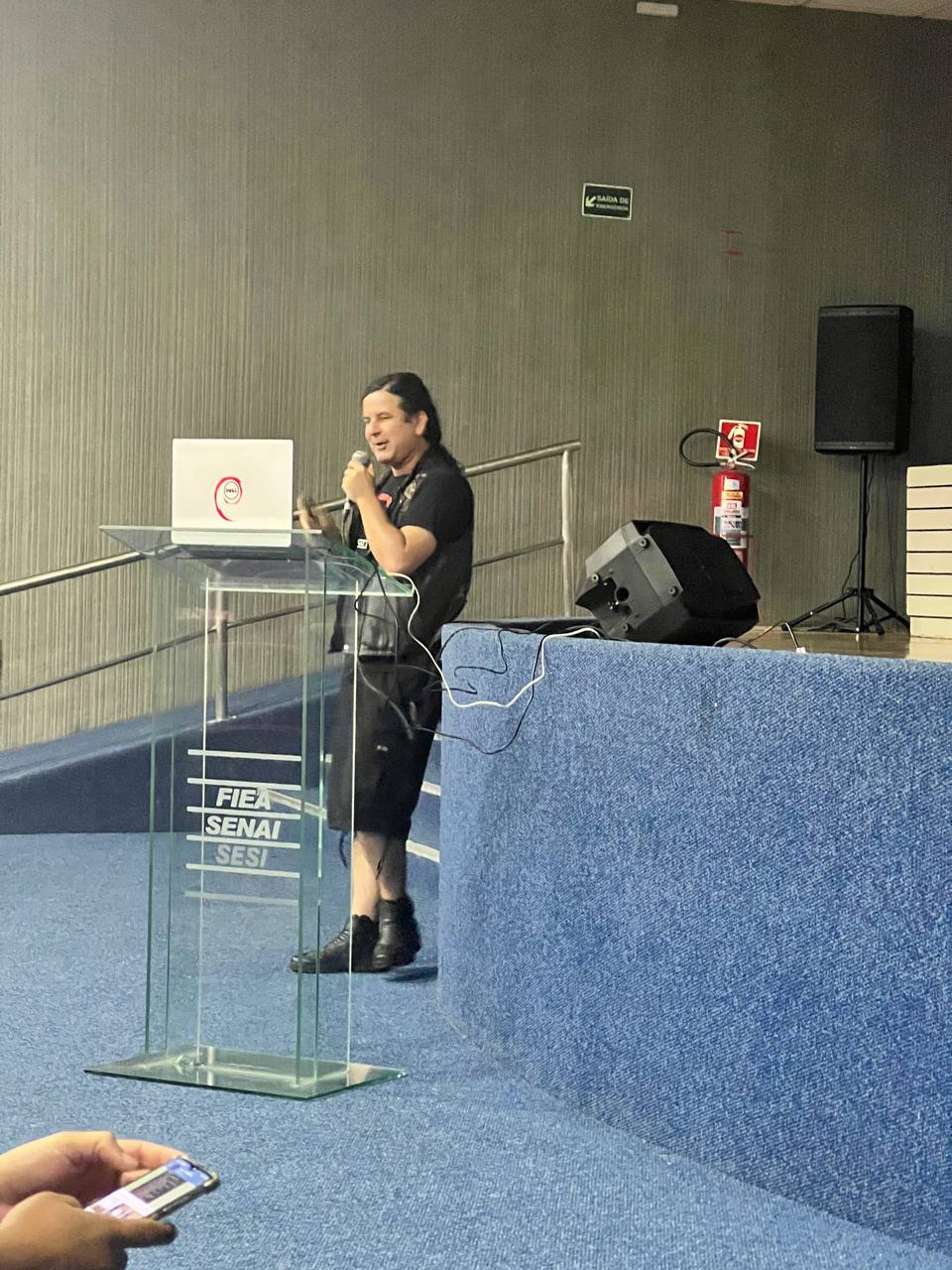
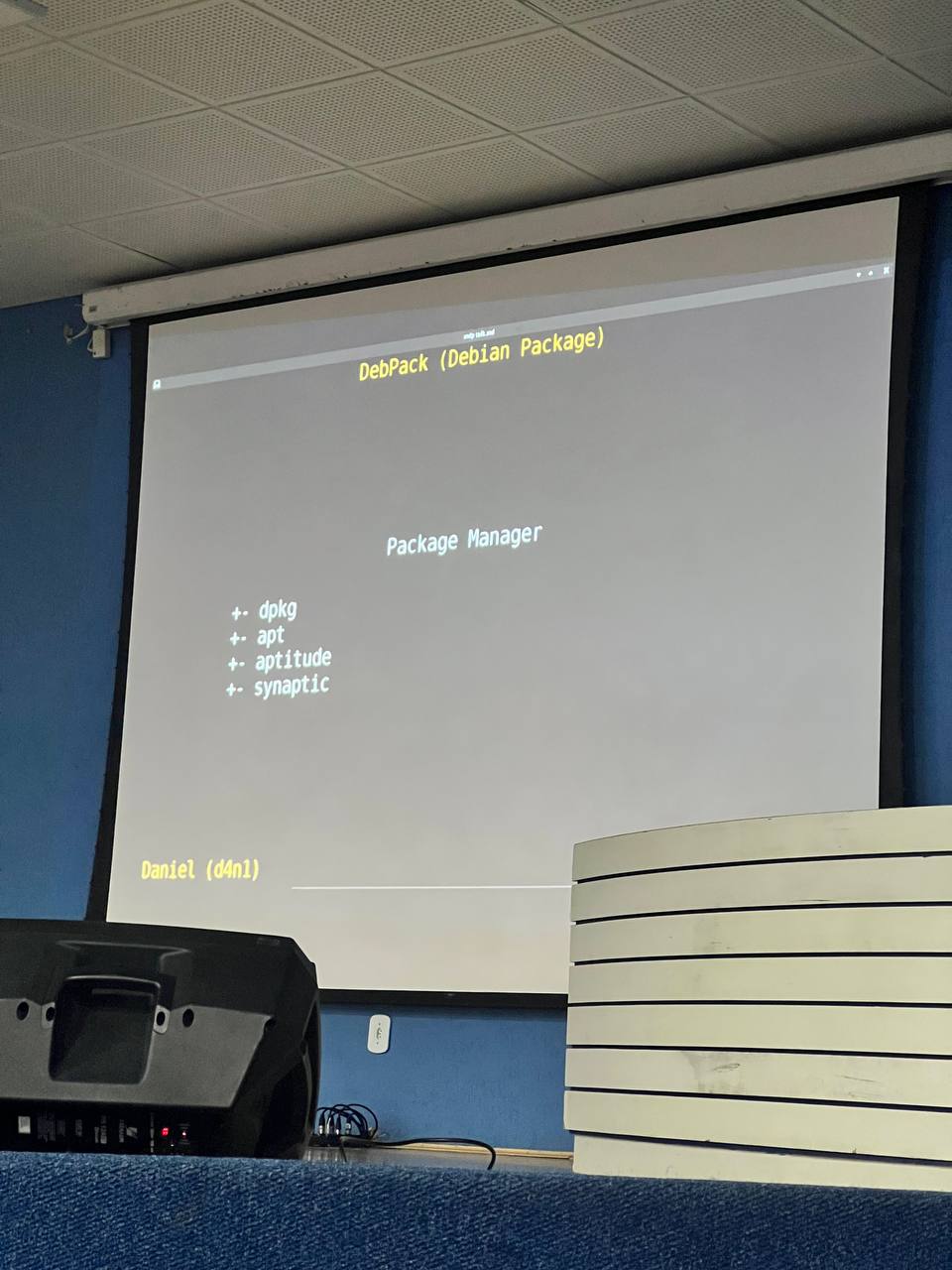
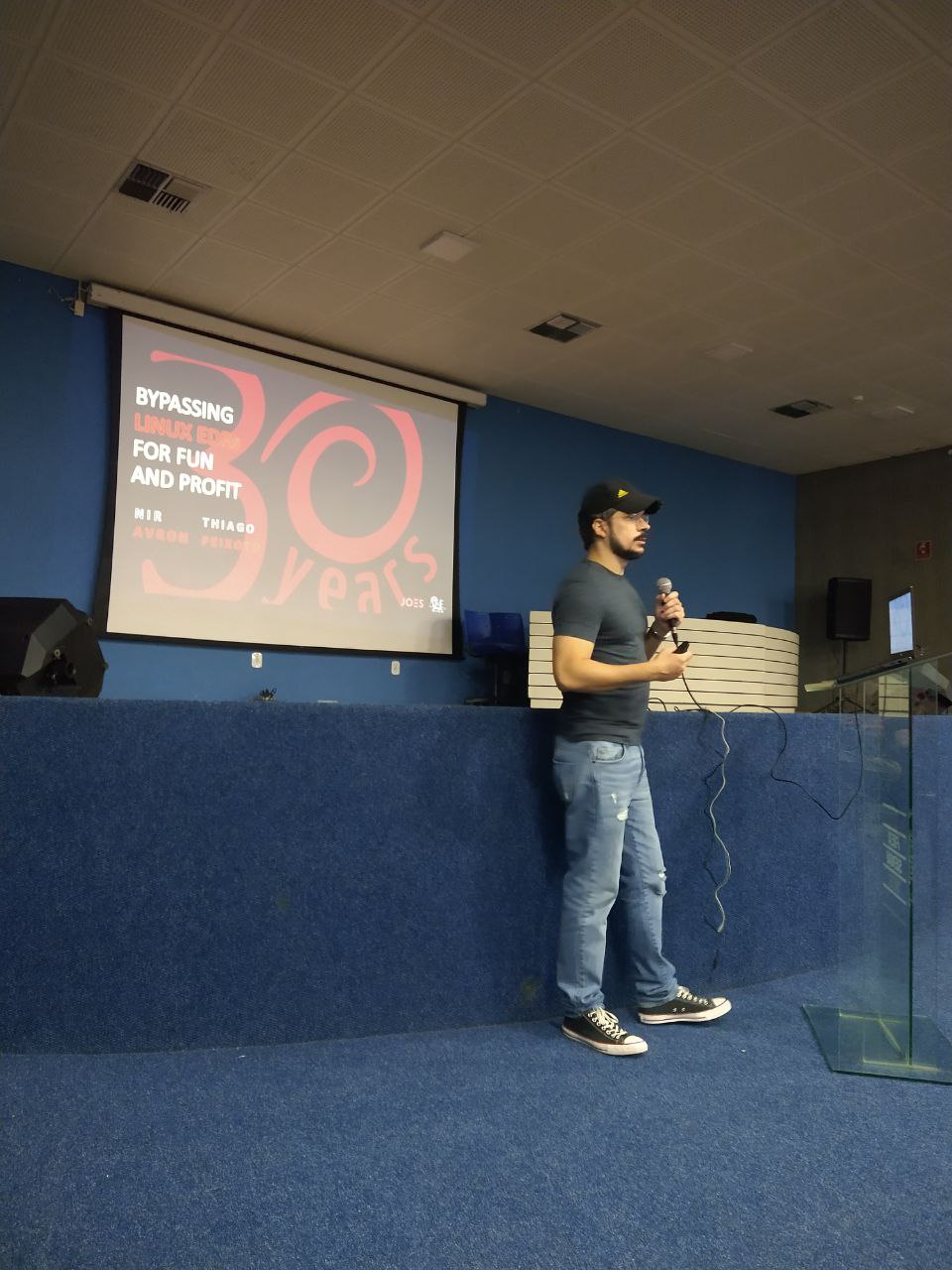
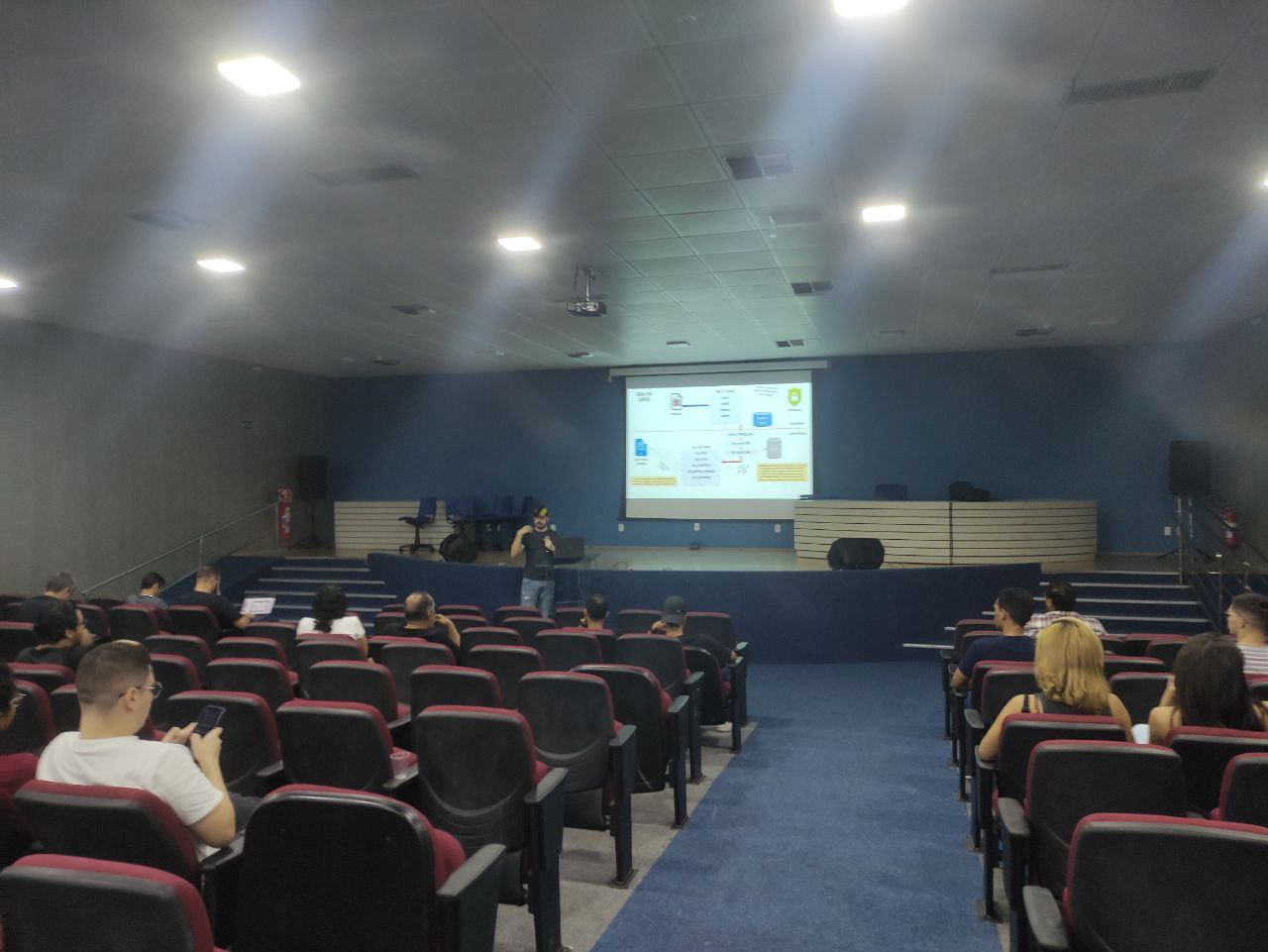

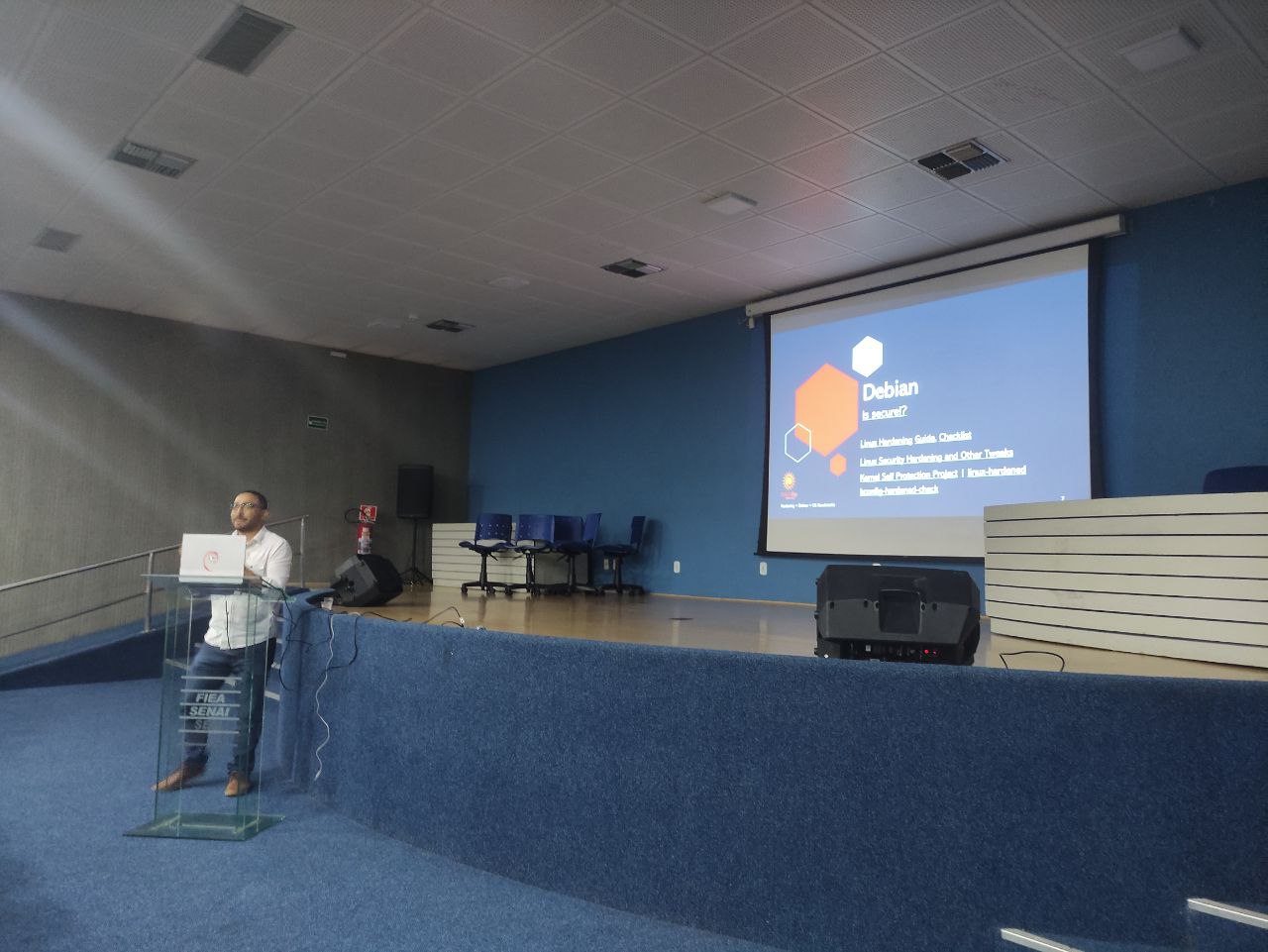
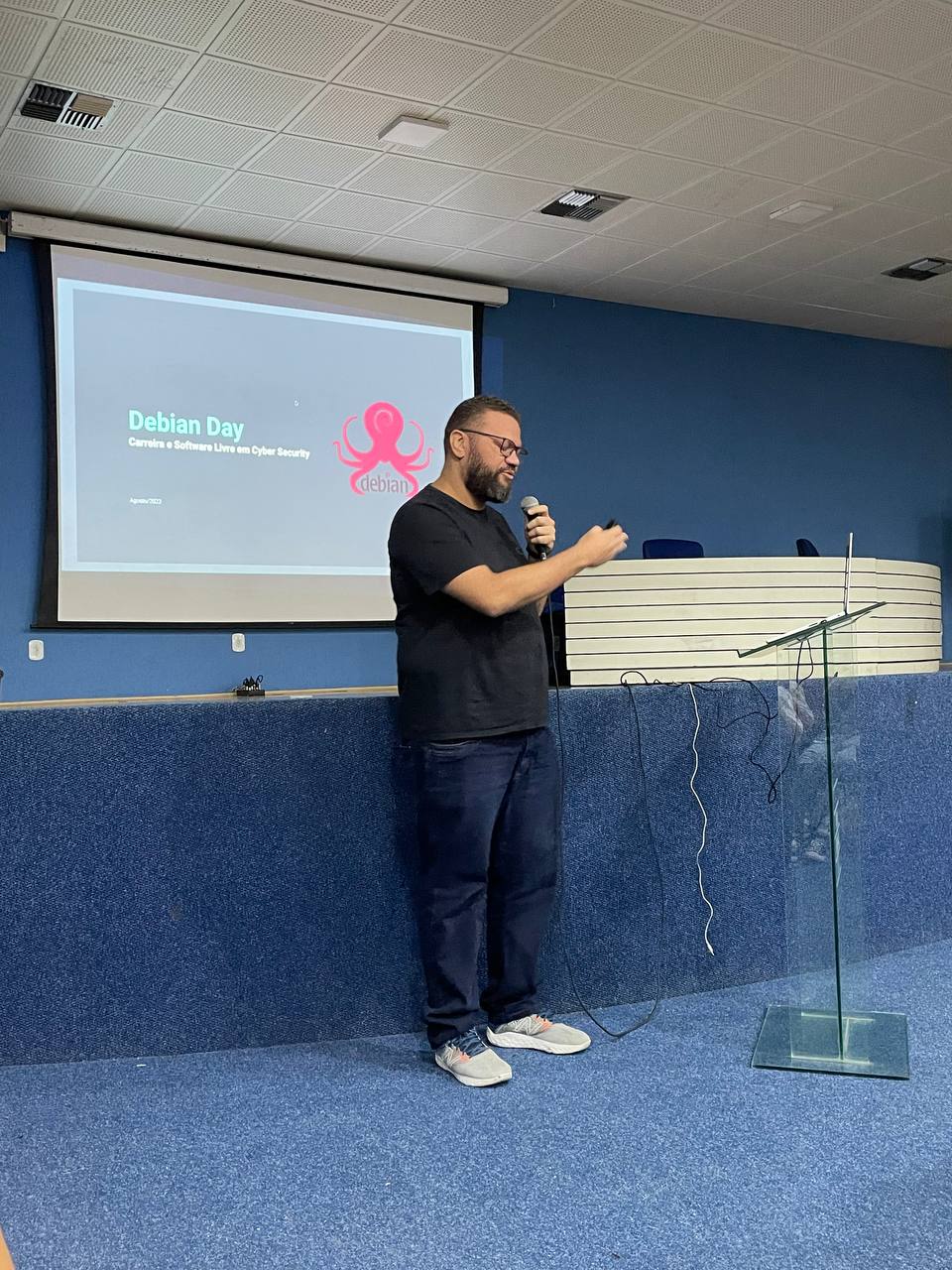
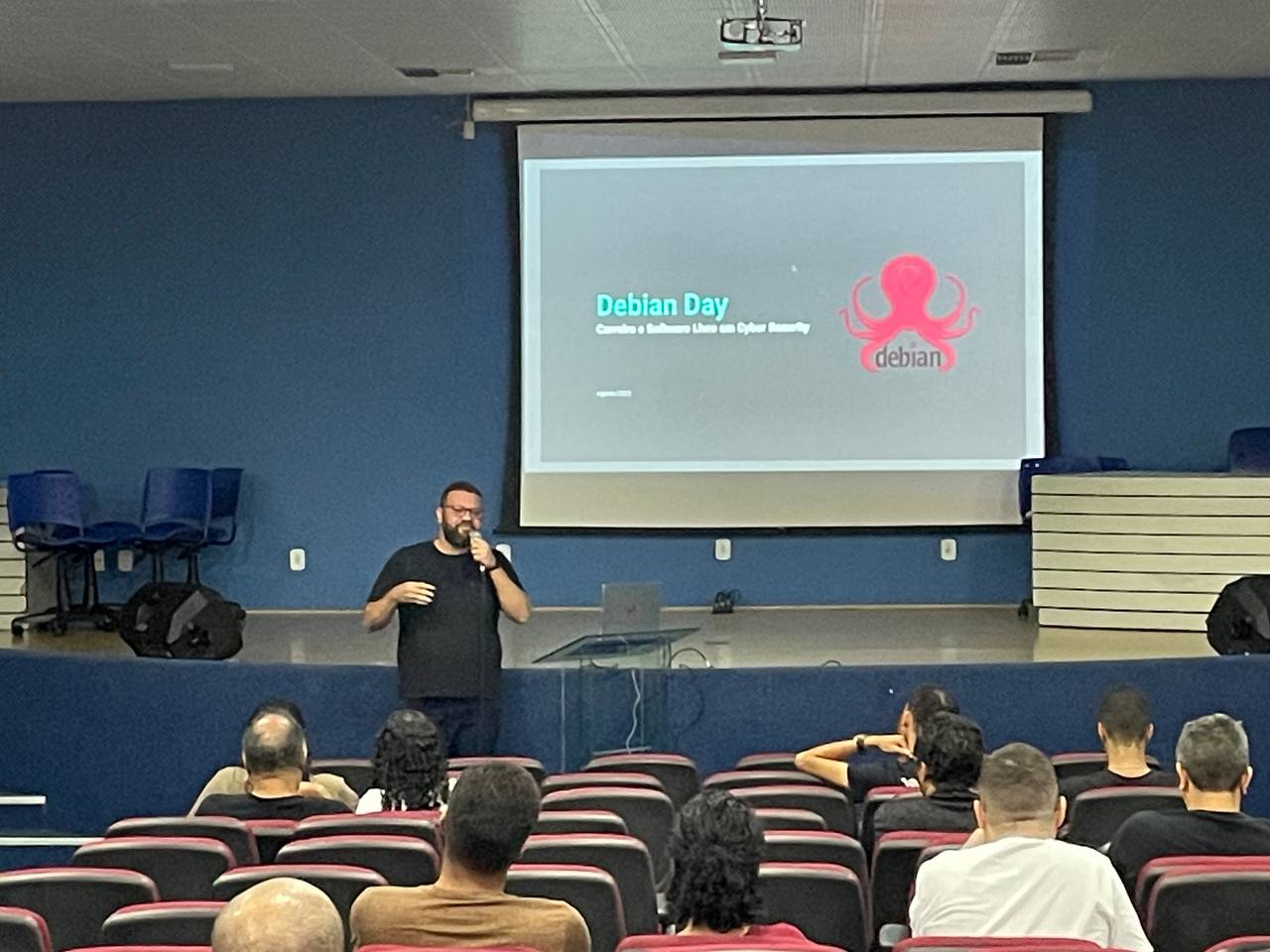

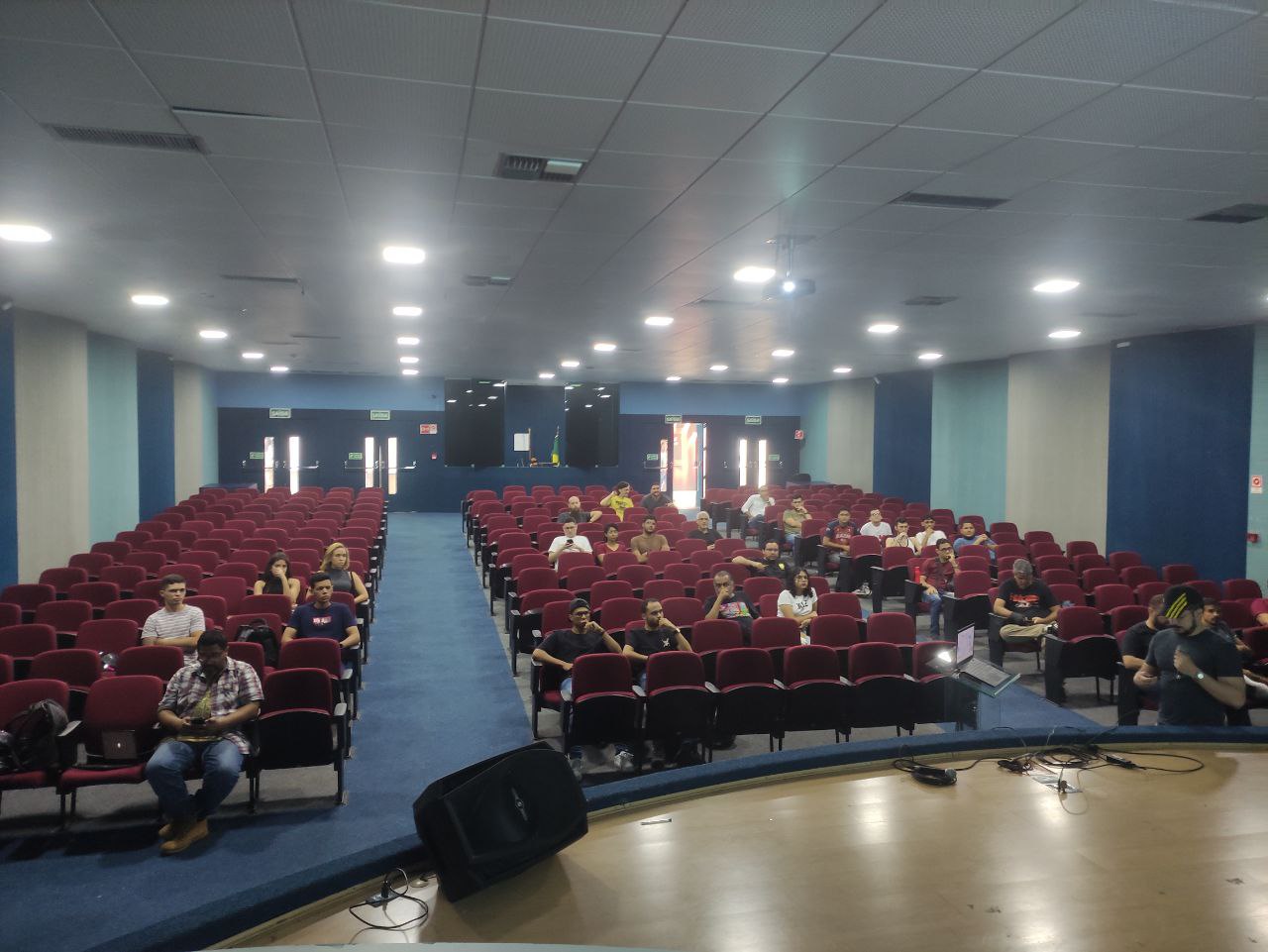
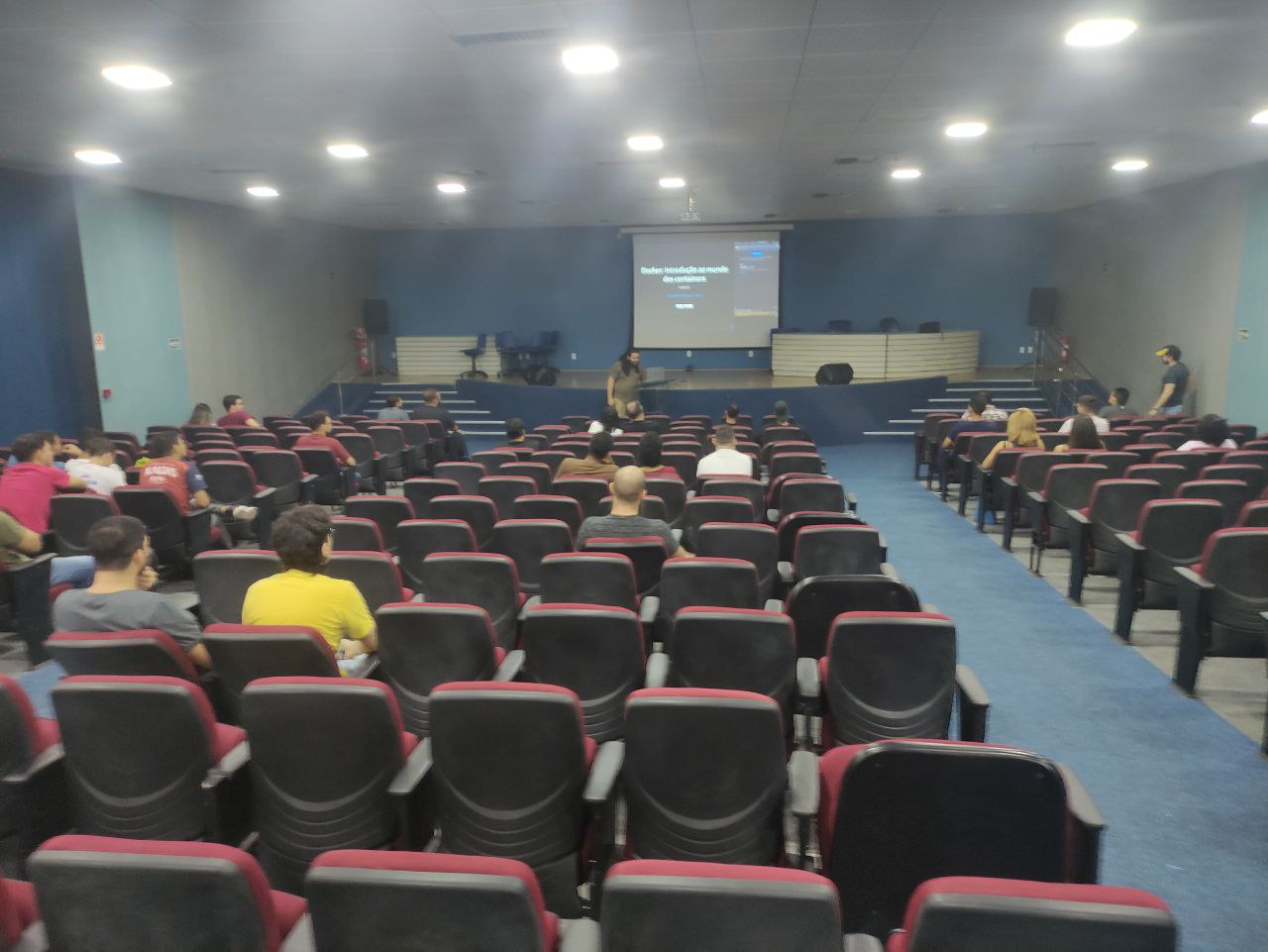


 Julien Ries anthropological research showed us that, already more than two million years ago, Homo Habilis looks like Symbolicus, with aesthetic sensibility, sense of symmetry and consciousness of creativity. Gilbert Durand confirms that the specific activity of man, the identity card of Homo Sapiens, is the symbolic activity, an essential part of his creativity. Then, man is creative at the moment when his first activates his imaginative feature.
So we can ask ourselves, how did we miss the creativity of man, of which so much we feel the need, or at least where is it hiding now? But above all which kind of creativity are we talking about?
<
Julien Ries anthropological research showed us that, already more than two million years ago, Homo Habilis looks like Symbolicus, with aesthetic sensibility, sense of symmetry and consciousness of creativity. Gilbert Durand confirms that the specific activity of man, the identity card of Homo Sapiens, is the symbolic activity, an essential part of his creativity. Then, man is creative at the moment when his first activates his imaginative feature.
So we can ask ourselves, how did we miss the creativity of man, of which so much we feel the need, or at least where is it hiding now? But above all which kind of creativity are we talking about?
< What happened in the
What happened in the  I have to admit that I was a bit lazy when it comes to working on RC bugs in
the last weeks. here's my not-so-stellar summary:
I have to admit that I was a bit lazy when it comes to working on RC bugs in
the last weeks. here's my not-so-stellar summary:

 Big release notes since 1.0:
We ve got a new list
Big release notes since 1.0:
We ve got a new list  The annoucement below just went to the
The annoucement below just went to the  I really should write these a
I really should write these a 

 If you d like to find out more about Debian CUT, I suggest you read
If you d like to find out more about Debian CUT, I suggest you read  This guy is very known by people who use to walk around the
This guy is very known by people who use to walk around the 
 Some of you may have noticed WebKitGTK+ 1.2.2 and 1.2.3 have been uploaded recently. Here s their announcement =). A quick summary: if you re running the 1.2.x series upgrade to 1.2.3.
Here s some information regarding 1.2.2:
1.2.2 is an update to the 1.2.x stable series; along with a lot of crash, and misc fixes the biggest changes are: 1) the inclusion of a new API from the development branch (webkit_back_forward_list_clear()),
Some of you may have noticed WebKitGTK+ 1.2.2 and 1.2.3 have been uploaded recently. Here s their announcement =). A quick summary: if you re running the 1.2.x series upgrade to 1.2.3.
Here s some information regarding 1.2.2:
1.2.2 is an update to the 1.2.x stable series; along with a lot of crash, and misc fixes the biggest changes are: 1) the inclusion of a new API from the development branch (webkit_back_forward_list_clear()), Starting about a year ago, I started following the release of videos from TED events. If one looked interesting, I would download the video to watch later. In this way, I accumulated a substantial collection of talks which I never managed to watch.
I spent a Saturday evening working my way through the list. These are my favorites out of this batch.
Starting about a year ago, I started following the release of videos from TED events. If one looked interesting, I would download the video to watch later. In this way, I accumulated a substantial collection of talks which I never managed to watch.
I spent a Saturday evening working my way through the list. These are my favorites out of this batch.
